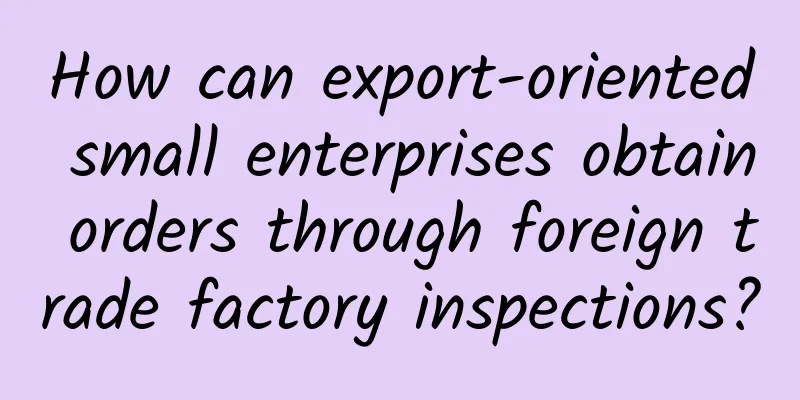The significance of implementing HACCP certification

|
As a brand-new food safety guarantee model that is completely different from the traditional food safety quality management system, the implementation of HACCP certification has broad and far-reaching significance for ensuring food safety. Below, we will explore the significance of implementing HACCP from the perspectives of food companies, consumers, and the government . |
<<: HACCP certification application scope
>>: The main reasons for the rise of HACCP certification
Recommend
What is EverMarker? What are the common problems with EverMarker?
What is EverMarker? Ever Marker (EverMarker), als...
Reasons for enterprises to implement ISO9000 family standards
What are the reasons for enterprises to implement...
What are the EUROPEAN FLAX certification standards?
New standards for EUROPEAN FLAX certification aud...
What should I do if the eBay seller does not ship the goods?
A reader asked me what to do if the eBay seller d...
Comparison between HACCP certification and traditional certification technology
Traditional food safety control processes are gen...
What is Fruugo? What are the advantages of Fruugo?
Fruugo is an interesting platform that combines f...
What is the Quanzhou Cross-border E-commerce Association? What are the requirements to join the Quanzhou Cross-border E-commerce Association?
What is Quanzhou Cross-border E-commerce Associat...
Walmart's new high-risk items in 2013: health and safety violations
1. Failure to provide PPE to all employees engage...
Factory Hygiene Management in BSCI
1.0 Purpose: In order to improve the sanitation of...
Understand what carbon peak, carbon neutrality, and carbon footprint are, as well as the calculation methods and standards of carbon footprint in one article
Everyone knows that climate change is a common ch...
Mattel Factory Inspection/Inspection Consultation Dormitory and Canteen Safety
Mattel Factory Inspection/Inspection Consultation...
How to perfectly connect with the new amfori BSCI platform?
Many factories have received invitations from cus...
Corporate Social Responsibility Training - Interpretation of BSCI Articles [April 10, 2010]
Shanghai Chaowang Enterprise Management Consultin...
When recycling scrap tires, should we choose ISCC EU or ISCC PLUS certification?
In ISCC, the use of scrap tires is defined as fol...
Social Responsibility Compliance Audit Checklist (II)
Carrefour Factory name: XX Dacheng Toys Co., Ltd....









